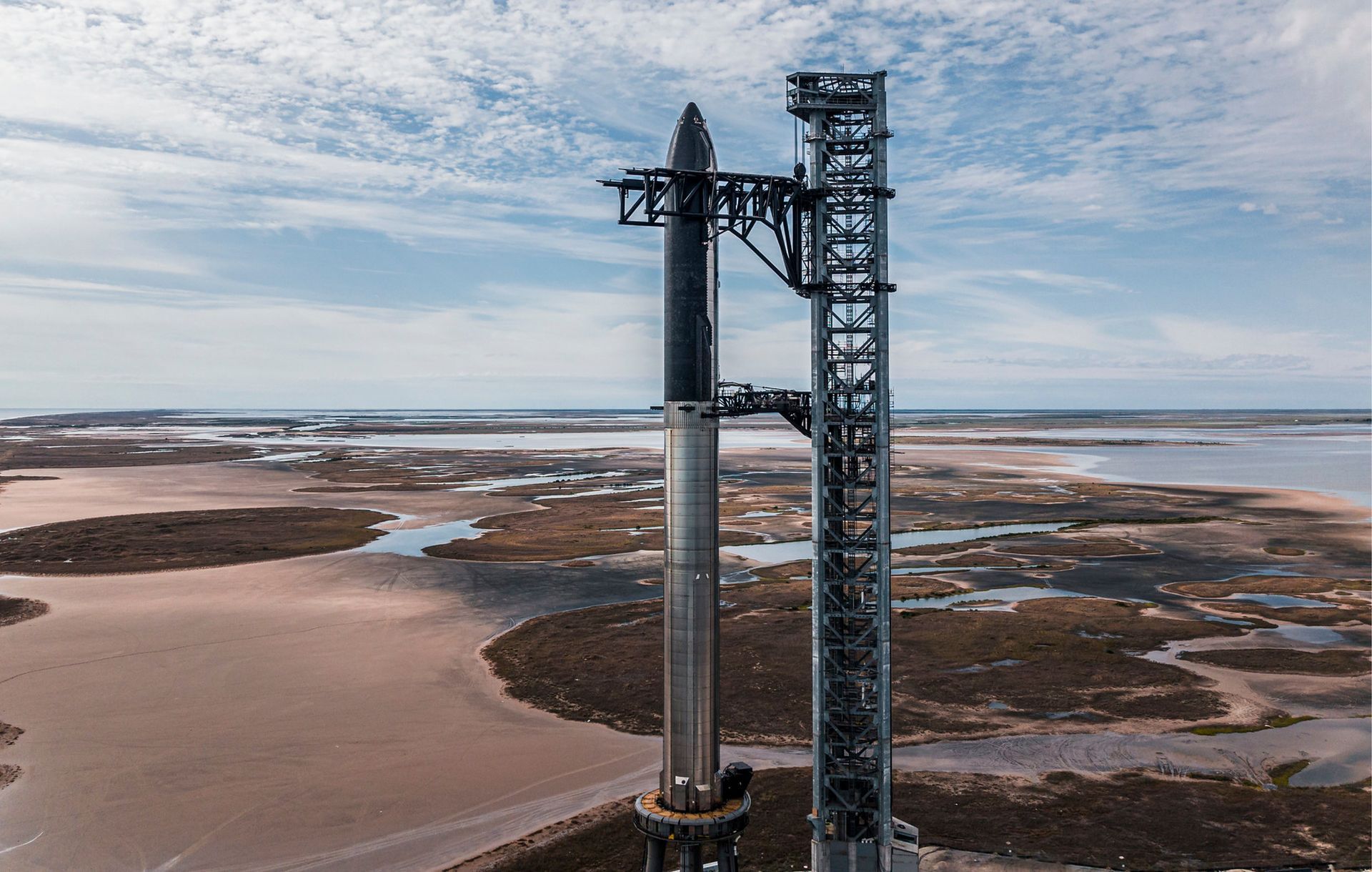
09 November 2024
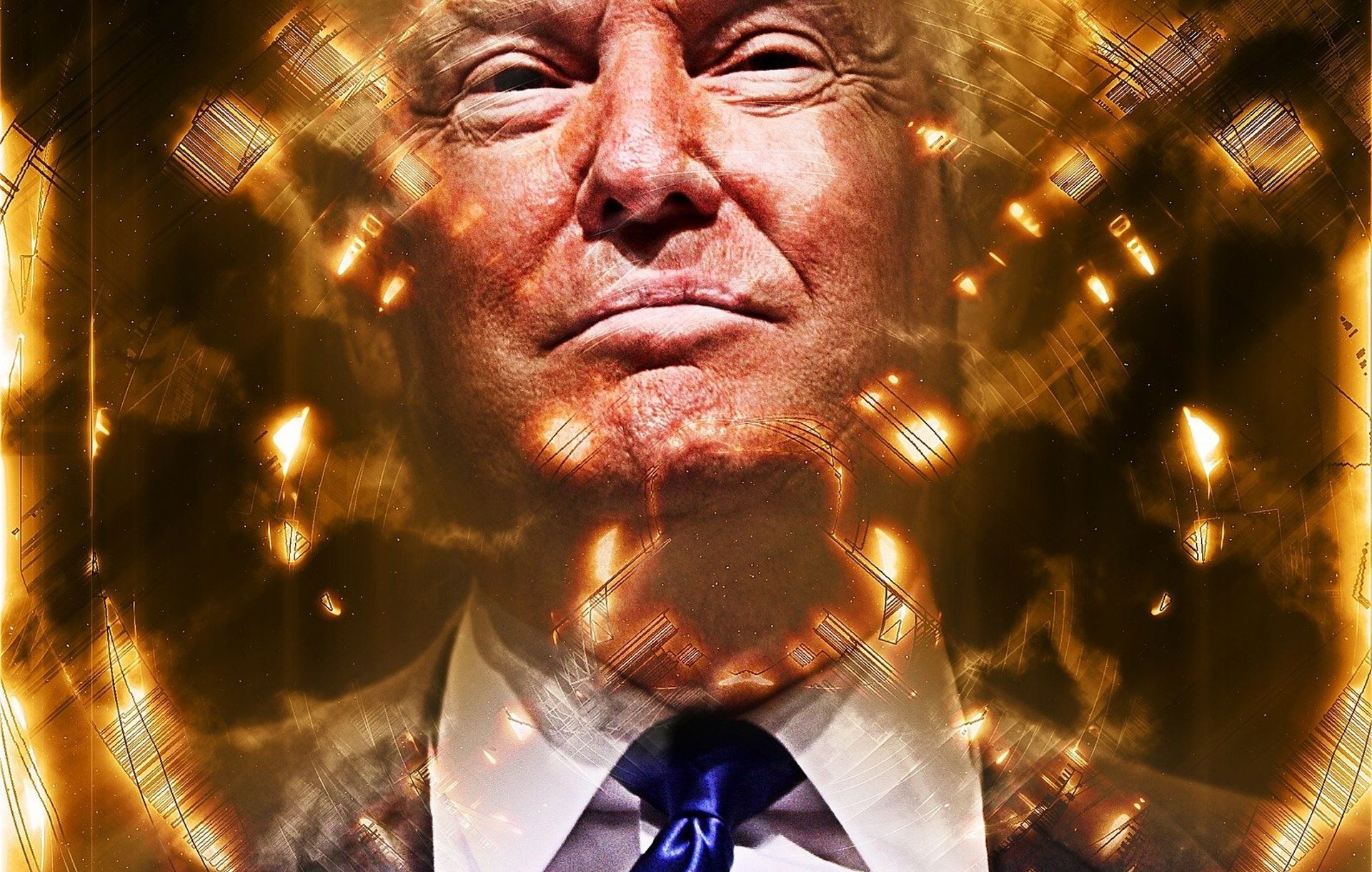
(Image: Pixabay)
Donald Trump’s reelection to the White House may not have come as a surprise to many, yet what he is expected to do in office, and what effect he will have business, is ton be seen. Trump is known to be somewhat unpredictable, yet also clear about some of his plans, such as to place tariffs on foreign exports, address foreign wars in Ukraine and the Middle East and of course, put America first. His election also comes a time of heightened awareness and activity in space exploration, and part of Trump’s success can also be attributed to his close allegiance to Elon Musk.
Donald Trump’s re-election to the White House may not have come as a surprise to many, yet what he is expected to do in office and how he will impact business is yet to be seen. Trump is known for his unpredictability but is also clear about some of his intentions, such as imposing tariffs on foreign imports, addressing conflicts in Ukraine and the Middle East, and, of course, putting America first. His election also coincides with a time of heightened awareness and activity in space exploration, and part of his success may be attributed to his close alignment with Elon Musk.
The previous Trump administration was responsible for several major US space achievements, including advancing the Artemis programme, establishing the US Space Council, and creating the Space Force. It could be said, then, that Trump may continue this trend and pursue a bolder US leadership role in space. Additionally, he may look to further commercialise space and develop more cost-effective approaches to US space programmes, reinforcing his overall aim of improving government efficiency.
Just days before the US election, NASA Associate Administrator Jim Free urged NASA to stay on course and maintain its commitment to the Artemis project, whatever the outcome. Remaining consistent would be key to retaining the lead and preventing competitors from catching up, Free added.
Consistency, and even improvement, in the US space effort will be critical in the coming months and years if the US wants to maintain its lead. China is rapidly gaining ground, with plans for competing mega-constellations in low Earth orbit, reusable rocket technology, crewed lunar landings, and lunar infrastructure.
We await the impact Trump will have on space. His competitive and isolationist approach could boost the US commercial sector and improve the efficiency of flawed programmes like NASA’s Mars Sample Return mission or the VIPER lunar rover. However, as a Reuters article notes, "some say his isolationist foreign policy could create a vacuum, allowing Beijing to expand its global influence.”
The international community stands at a critical juncture in space governance, where unity is more crucial than ever to maintain peace, sustainability, and equity. With space's value increasing for achieving sustainable development goals, and on the cusp of establishing lunar infrastructure and utilising off-world resources, collaboration will be essential.
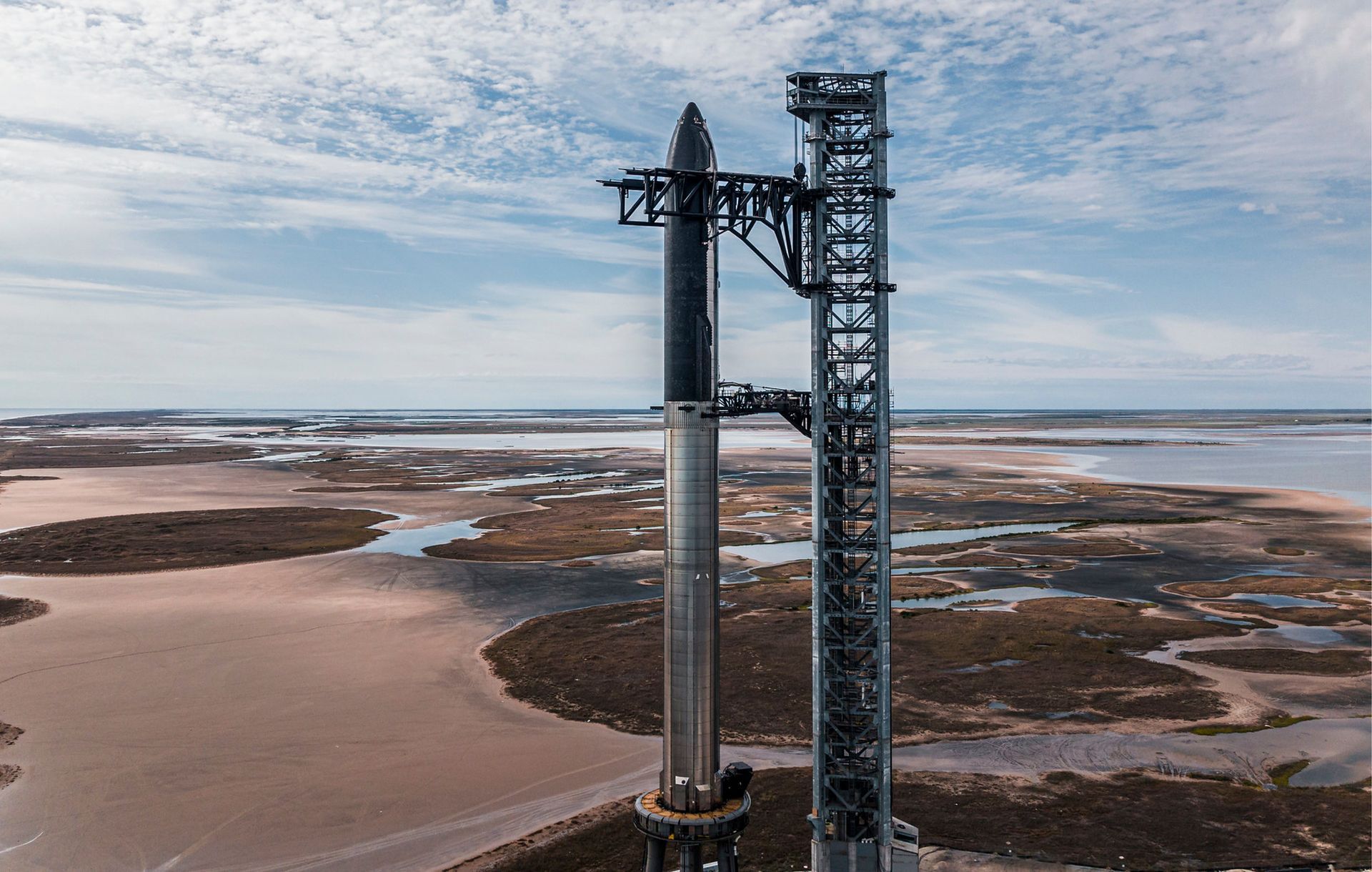
(Image: SpaceX)
To protect US technology, or to leave a leadership vacuum?
US-China space relations have been fraught for some time, especially since the introduction of the US Wolf Amendment in 2011, which prevents NASA from using public funds to engage with China without the consent of Congress and the FBI. An article from China Daily this week claims that the Wolf Amendment is now haunting NASA, as the administration seeks access to China’s lunar samples collected by the Chang’e-6 mission.
With a Trump administration likely to prioritise US competitiveness through measures such as strict tariffs on foreign imports, any loosening of these restrictions seems improbable. An isolationist policy under Trump would aim to protect US industry, and it appears that he places significant value on the space sector, as evidenced in his victory speech. In this speech, he thanked Elon Musk for his campaign support and praised the success of the recent Starship demonstration, which saw the booster stage perform a successful landing.
Trump remarked that the US was the only nation pioneering this technology, though he may also be closely monitoring Chinese competition. This week, Chinese launch startup Cosmleap secured $14 million in funding to develop its own reusable launch system, which uses a “chopstick” mechanism similar to SpaceX’s approach to catching first-stage boosters. Other Chinese startups, including Landspace, Space Pioneer, and Deep Blue Aerospace, are also advancing reusable launch technology. Protecting US innovation and technology is therefore likely to remain a high priority.
However, the diplomatic void left by an isolationist US space policy could prompt a seismic shift in international space relations. China is keen to expand its partnerships in space, pursuing collaboration on the Tiangong space station and through its work with the United Nations Office for Outer Space Affairs (UNOOSA). Additionally, China is advancing cooperation on its International Lunar Research Station project, which rivals the US Artemis programme and has attracted participation from 13 nations and over 40 institutions.
How will Trump affect Taiwan’s defence and space interests?
It remains to be seen how Trump’s approach will affect stability in the Taiwan Strait and the US's legal obligation to provide Taiwan with the means to defend itself. The first Trump administration demonstrated increased support for Taiwan, even breaking diplomatic protocol by accepting a congratulatory phone call from the then-Taiwanese president, Tsai Ing-wen.
However, Trump has recently suggested that Taiwan may need to pay the US for its defence capabilities and accused Taiwan's leading semiconductor industry of "stealing American jobs." When asked if he would use force to protect Taiwan from Chinese aggression, Trump replied that he "wouldn’t have to" because President Xi “respects me.”
Another issue that has gained prominence since Trump’s first term is the growing value of space technology, particularly in defence, as seen in the strategic use of Starlink during the war in Ukraine.
This week, Taiwanese academics highlighted the importance of Taiwan developing independent communications satellites to replace Chinese-made telecom services in overseas missions and strengthen digital communications resilience, according to the Taipei Times. Kuma Academy CEO Ho Cheng-hui suggested that Taiwan could consider SpaceX's Starshield system—a military-grade version of Starlink—but Elon Musk’s close ties with China make this uncertain. There are also rumours that Musk could play a role in Trump’s administration, though this remains to be seen.
Additionally, Reuters reported that SpaceX requested Taiwanese space manufacturers to relocate production outside of Taiwan due to “geopolitical factors.” In response, Taiwan’s Ministry of Economic Affairs stated that "short-term political factors should not affect the supply chain relationship between international satellite companies and Taiwanese manufacturers.”
While Taiwan has been keen to establish secure satellite communications, relations with SpaceX may be off the table due to Musk’s influence. This politicisation of technology, however, could be paving the way for new partnerships. In October, Taiwan formed a partnership with Eutelsat-OneWeb, a UK-European company, to secure low-Earth orbit satellite internet connectivity.
Trump’s second term would aim to bolster US business, which may not be good news for exporters to the US, while strengthening US leadership in space. Yet an isolationist approach may create a void in international diplomacy, leaving opportunities for China or, as seen with the Eutelsat-OneWeb deal, possibly Europe. The US will undoubtedly continue to lead in space, but the Trump administration will need to carefully monitor a rapidly evolving space industry.

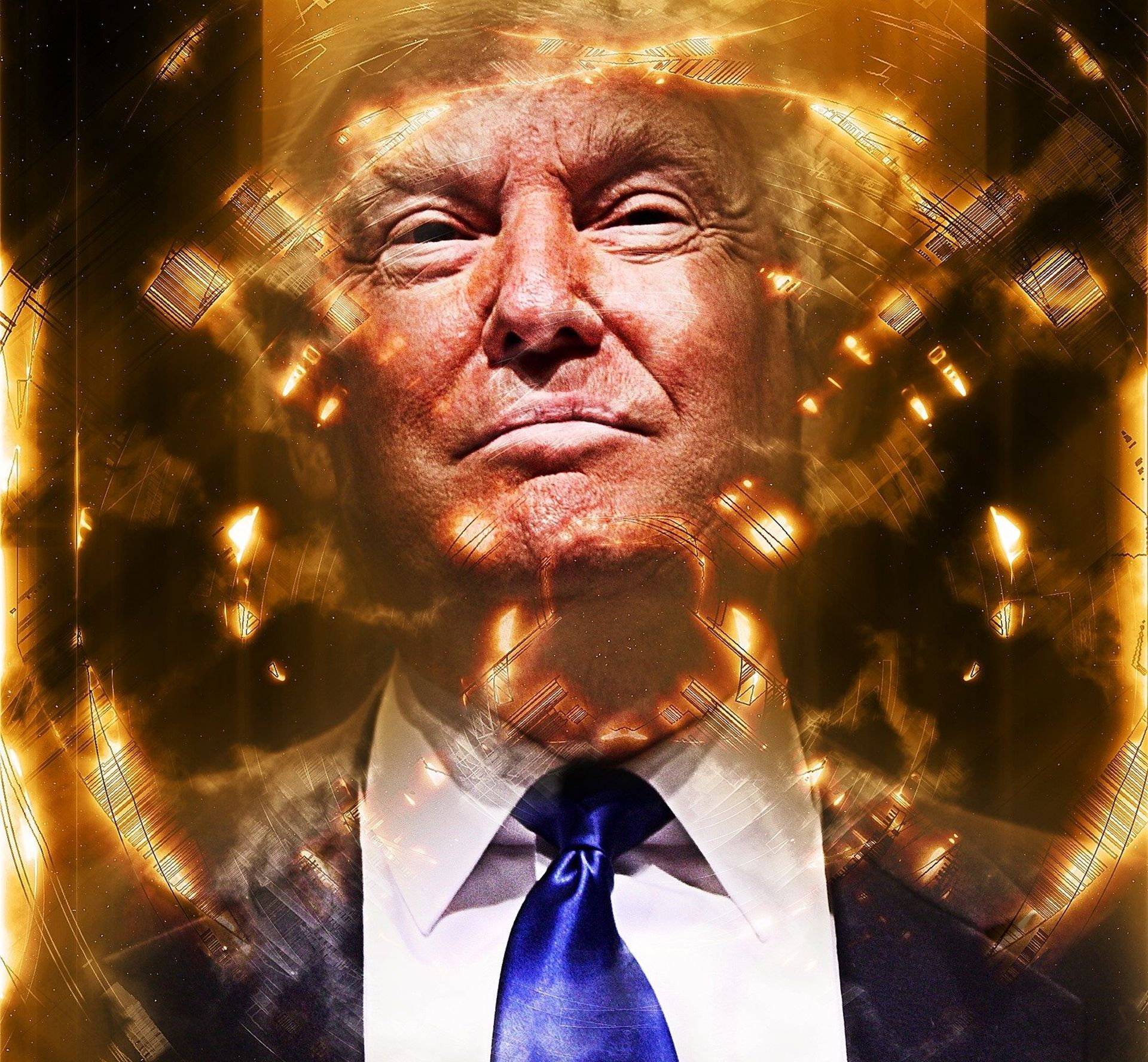
(Image Render: Adobe)
09 November 2024
US Election special - How Trump’s Isolationist Policies Could Reshape Space Exploration, Taiwan’s Defence, and International Space Alliances - Space News Roundup

Donald Trump’s reelection to the White House may not have come as a surprise to many, yet what he is expected to do in office, and what effect he will have business, is ton be seen. Trump is known to be somewhat unpredictable, yet also clear about some of his plans, such as to place tariffs on foreign exports, address foreign wars in Ukraine and the Middle East and of course, put America first. His election also comes a time of heightened awareness and activity in space exploration, and part of Trump’s success can also be attributed to his close allegiance to Elon Musk.
Donald Trump’s re-election to the White House may not have come as a surprise to many, yet what he is expected to do in office and how he will impact business is yet to be seen. Trump is known for his unpredictability but is also clear about some of his intentions, such as imposing tariffs on foreign imports, addressing conflicts in Ukraine and the Middle East, and, of course, putting America first. His election also coincides with a time of heightened awareness and activity in space exploration, and part of his success may be attributed to his close alignment with Elon Musk.
The previous Trump administration was responsible for several major US space achievements, including advancing the Artemis programme, establishing the US Space Council, and creating the Space Force. It could be said, then, that Trump may continue this trend and pursue a bolder US leadership role in space. Additionally, he may look to further commercialise space and develop more cost-effective approaches to US space programmes, reinforcing his overall aim of improving government efficiency.
Just days before the US election, NASA Associate Administrator Jim Free urged NASA to stay on course and maintain its commitment to the Artemis project, whatever the outcome. Remaining consistent would be key to retaining the lead and preventing competitors from catching up, Free added.
Consistency, and even improvement, in the US space effort will be critical in the coming months and years if the US wants to maintain its lead. China is rapidly gaining ground, with plans for competing mega-constellations in low Earth orbit, reusable rocket technology, crewed lunar landings, and lunar infrastructure.
We await the impact Trump will have on space. His competitive and isolationist approach could boost the US commercial sector and improve the efficiency of flawed programmes like NASA’s Mars Sample Return mission or the VIPER lunar rover. However, as a Reuters article notes, "some say his isolationist foreign policy could create a vacuum, allowing Beijing to expand its global influence.”
The international community stands at a critical juncture in space governance, where unity is more crucial than ever to maintain peace, sustainability, and equity. With space's value increasing for achieving sustainable development goals, and on the cusp of establishing lunar infrastructure and utilising off-world resources, collaboration will be essential.
To protect US technology, or to leave a leadership vacuum?
US-China space relations have been fraught for some time, especially since the introduction of the US Wolf Amendment in 2011, which prevents NASA from using public funds to engage with China without the consent of Congress and the FBI. An article from China Daily this week claims that the Wolf Amendment is now haunting NASA, as the administration seeks access to China’s lunar samples collected by the Chang’e-6 mission.
With a Trump administration likely to prioritise US competitiveness through measures such as strict tariffs on foreign imports, any loosening of these restrictions seems improbable. An isolationist policy under Trump would aim to protect US industry, and it appears that he places significant value on the space sector, as evidenced in his victory speech. In this speech, he thanked Elon Musk for his campaign support and praised the success of the recent Starship demonstration, which saw the booster stage perform a successful landing.
Trump remarked that the US was the only nation pioneering this technology, though he may also be closely monitoring Chinese competition. This week, Chinese launch startup Cosmleap secured $14 million in funding to develop its own reusable launch system, which uses a “chopstick” mechanism similar to SpaceX’s approach to catching first-stage boosters. Other Chinese startups, including Landspace, Space Pioneer, and Deep Blue Aerospace, are also advancing reusable launch technology. Protecting US innovation and technology is therefore likely to remain a high priority.
However, the diplomatic void left by an isolationist US space policy could prompt a seismic shift in international space relations. China is keen to expand its partnerships in space, pursuing collaboration on the Tiangong space station and through its work with the United Nations Office for Outer Space Affairs (UNOOSA). Additionally, China is advancing cooperation on its International Lunar Research Station project, which rivals the US Artemis programme and has attracted participation from 13 nations and over 40 institutions.
How will Trump affect Taiwan’s defence and space interests?
It remains to be seen how Trump’s approach will affect stability in the Taiwan Strait and the US's legal obligation to provide Taiwan with the means to defend itself. The first Trump administration demonstrated increased support for Taiwan, even breaking diplomatic protocol by accepting a congratulatory phone call from the then-Taiwanese president, Tsai Ing-wen.
However, Trump has recently suggested that Taiwan may need to pay the US for its defence capabilities and accused Taiwan's leading semiconductor industry of "stealing American jobs." When asked if he would use force to protect Taiwan from Chinese aggression, Trump replied that he "wouldn’t have to" because President Xi “respects me.”
Another issue that has gained prominence since Trump’s first term is the growing value of space technology, particularly in defence, as seen in the strategic use of Starlink during the war in Ukraine.
This week, Taiwanese academics highlighted the importance of Taiwan developing independent communications satellites to replace Chinese-made telecom services in overseas missions and strengthen digital communications resilience, according to the Taipei Times. Kuma Academy CEO Ho Cheng-hui suggested that Taiwan could consider SpaceX's Starshield system—a military-grade version of Starlink—but Elon Musk’s close ties with China make this uncertain. There are also rumours that Musk could play a role in Trump’s administration, though this remains to be seen.
Additionally, Reuters reported that SpaceX requested Taiwanese space manufacturers to relocate production outside of Taiwan due to “geopolitical factors.” In response, Taiwan’s Ministry of Economic Affairs stated that "short-term political factors should not affect the supply chain relationship between international satellite companies and Taiwanese manufacturers.”
While Taiwan has been keen to establish secure satellite communications, relations with SpaceX may be off the table due to Musk’s influence. This politicisation of technology, however, could be paving the way for new partnerships. In October, Taiwan formed a partnership with Eutelsat-OneWeb, a UK-European company, to secure low-Earth orbit satellite internet connectivity.
Trump’s second term would aim to bolster US business, which may not be good news for exporters to the US, while strengthening US leadership in space. Yet an isolationist approach may create a void in international diplomacy, leaving opportunities for China or, as seen with the Eutelsat-OneWeb deal, possibly Europe. The US will undoubtedly continue to lead in space, but the Trump administration will need to carefully monitor a rapidly evolving space industry.
Share this article


09 November 2024
US Election special - How Trump’s Isolationist Policies Could Reshape Space Exploration, Taiwan’s Defence, and International Space Alliances - Space News Roundup

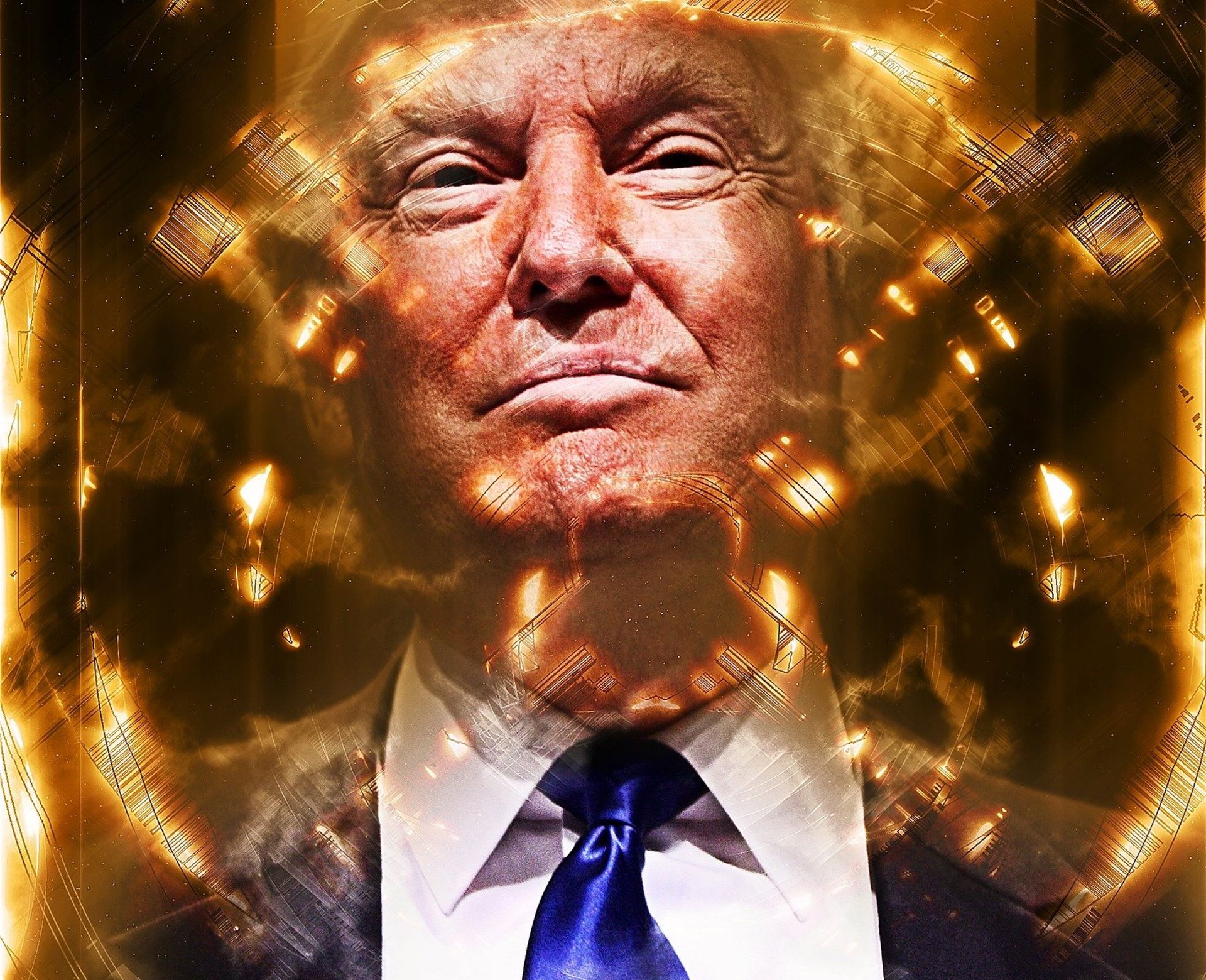
(Image: Pixabay)
IDonald Trump’s reelection to the White House may not have come as a surprise to many, yet what he is expected to do in office, and what effect he will have business, is ton be seen. Trump is known to be somewhat unpredictable, yet also clear about some of his plans, such as to place tariffs on foreign exports, address foreign wars in Ukraine and the Middle East and of course, put America first. His election also comes a time of heightened awareness and activity in space exploration, and part of Trump’s success can also be attributed to his close allegiance to Elon Musk.
Donald Trump’s re-election to the White House may not have come as a surprise to many, yet what he is expected to do in office and how he will impact business is yet to be seen. Trump is known for his unpredictability but is also clear about some of his intentions, such as imposing tariffs on foreign imports, addressing conflicts in Ukraine and the Middle East, and, of course, putting America first. His election also coincides with a time of heightened awareness and activity in space exploration, and part of his success may be attributed to his close alignment with Elon Musk.
The previous Trump administration was responsible for several major US space achievements, including advancing the Artemis programme, establishing the US Space Council, and creating the Space Force. It could be said, then, that Trump may continue this trend and pursue a bolder US leadership role in space. Additionally, he may look to further commercialise space and develop more cost-effective approaches to US space programmes, reinforcing his overall aim of improving government efficiency.
Just days before the US election, NASA Associate Administrator Jim Free urged NASA to stay on course and maintain its commitment to the Artemis project, whatever the outcome. Remaining consistent would be key to retaining the lead and preventing competitors from catching up, Free added.
Consistency, and even improvement, in the US space effort will be critical in the coming months and years if the US wants to maintain its lead. China is rapidly gaining ground, with plans for competing mega-constellations in low Earth orbit, reusable rocket technology, crewed lunar landings, and lunar infrastructure.
We await the impact Trump will have on space. His competitive and isolationist approach could boost the US commercial sector and improve the efficiency of flawed programmes like NASA’s Mars Sample Return mission or the VIPER lunar rover. However, as a Reuters article notes, "some say his isolationist foreign policy could create a vacuum, allowing Beijing to expand its global influence.”
The international community stands at a critical juncture in space governance, where unity is more crucial than ever to maintain peace, sustainability, and equity. With space's value increasing for achieving sustainable development goals, and on the cusp of establishing lunar infrastructure and utilising off-world resources, collaboration will be essential.
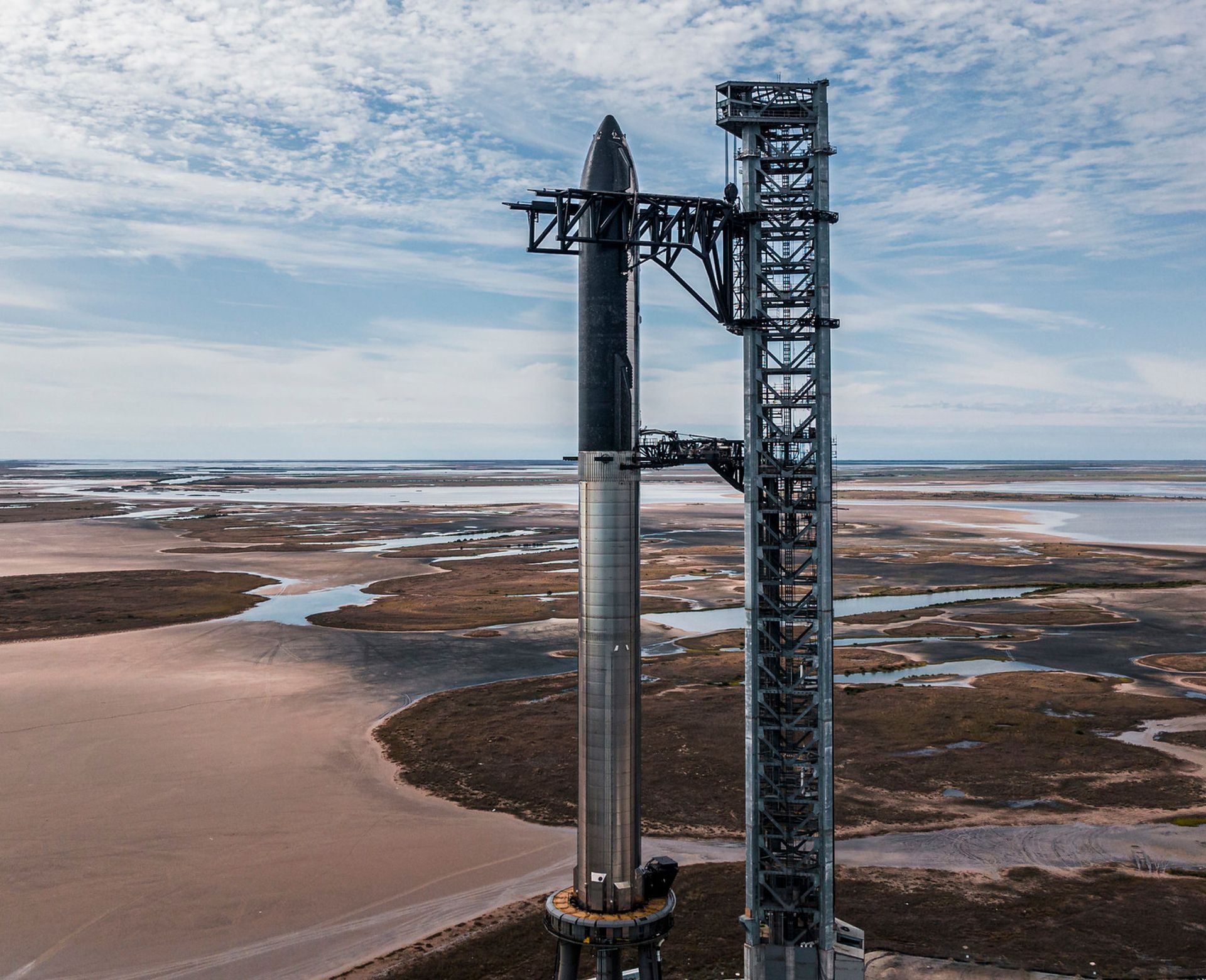
(Image: SpaceX)
To protect US technology, or to leave a leadership vacuum?
US-China space relations have been fraught for some time, especially since the introduction of the US Wolf Amendment in 2011, which prevents NASA from using public funds to engage with China without the consent of Congress and the FBI. An article from China Daily this week claims that the Wolf Amendment is now haunting NASA, as the administration seeks access to China’s lunar samples collected by the Chang’e-6 mission.
With a Trump administration likely to prioritise US competitiveness through measures such as strict tariffs on foreign imports, any loosening of these restrictions seems improbable. An isolationist policy under Trump would aim to protect US industry, and it appears that he places significant value on the space sector, as evidenced in his victory speech. In this speech, he thanked Elon Musk for his campaign support and praised the success of the recent Starship demonstration, which saw the booster stage perform a successful landing.
Trump remarked that the US was the only nation pioneering this technology, though he may also be closely monitoring Chinese competition. This week, Chinese launch startup Cosmleap secured $14 million in funding to develop its own reusable launch system, which uses a “chopstick” mechanism similar to SpaceX’s approach to catching first-stage boosters. Other Chinese startups, including Landspace, Space Pioneer, and Deep Blue Aerospace, are also advancing reusable launch technology. Protecting US innovation and technology is therefore likely to remain a high priority.
However, the diplomatic void left by an isolationist US space policy could prompt a seismic shift in international space relations. China is keen to expand its partnerships in space, pursuing collaboration on the Tiangong space station and through its work with the United Nations Office for Outer Space Affairs (UNOOSA). Additionally, China is advancing cooperation on its International Lunar Research Station project, which rivals the US Artemis programme and has attracted participation from 13 nations and over 40 institutions.
How will Trump affect Taiwan’s defence and space interests?
It remains to be seen how Trump’s approach will affect stability in the Taiwan Strait and the US's legal obligation to provide Taiwan with the means to defend itself. The first Trump administration demonstrated increased support for Taiwan, even breaking diplomatic protocol by accepting a congratulatory phone call from the then-Taiwanese president, Tsai Ing-wen.
However, Trump has recently suggested that Taiwan may need to pay the US for its defence capabilities and accused Taiwan's leading semiconductor industry of "stealing American jobs." When asked if he would use force to protect Taiwan from Chinese aggression, Trump replied that he "wouldn’t have to" because President Xi “respects me.”
Another issue that has gained prominence since Trump’s first term is the growing value of space technology, particularly in defence, as seen in the strategic use of Starlink during the war in Ukraine.
This week, Taiwanese academics highlighted the importance of Taiwan developing independent communications satellites to replace Chinese-made telecom services in overseas missions and strengthen digital communications resilience, according to the Taipei Times. Kuma Academy CEO Ho Cheng-hui suggested that Taiwan could consider SpaceX's Starshield system—a military-grade version of Starlink—but Elon Musk’s close ties with China make this uncertain. There are also rumours that Musk could play a role in Trump’s administration, though this remains to be seen.
Additionally, Reuters reported that SpaceX requested Taiwanese space manufacturers to relocate production outside of Taiwan due to “geopolitical factors.” In response, Taiwan’s Ministry of Economic Affairs stated that "short-term political factors should not affect the supply chain relationship between international satellite companies and Taiwanese manufacturers.”
While Taiwan has been keen to establish secure satellite communications, relations with SpaceX may be off the table due to Musk’s influence. This politicisation of technology, however, could be paving the way for new partnerships. In October, Taiwan formed a partnership with Eutelsat-OneWeb, a UK-European company, to secure low-Earth orbit satellite internet connectivity.
Trump’s second term would aim to bolster US business, which may not be good news for exporters to the US, while strengthening US leadership in space. Yet an isolationist approach may create a void in international diplomacy, leaving opportunities for China or, as seen with the Eutelsat-OneWeb deal, possibly Europe. The US will undoubtedly continue to lead in space, but the Trump administration will need to carefully monitor a rapidly evolving space industry.
Share this article


